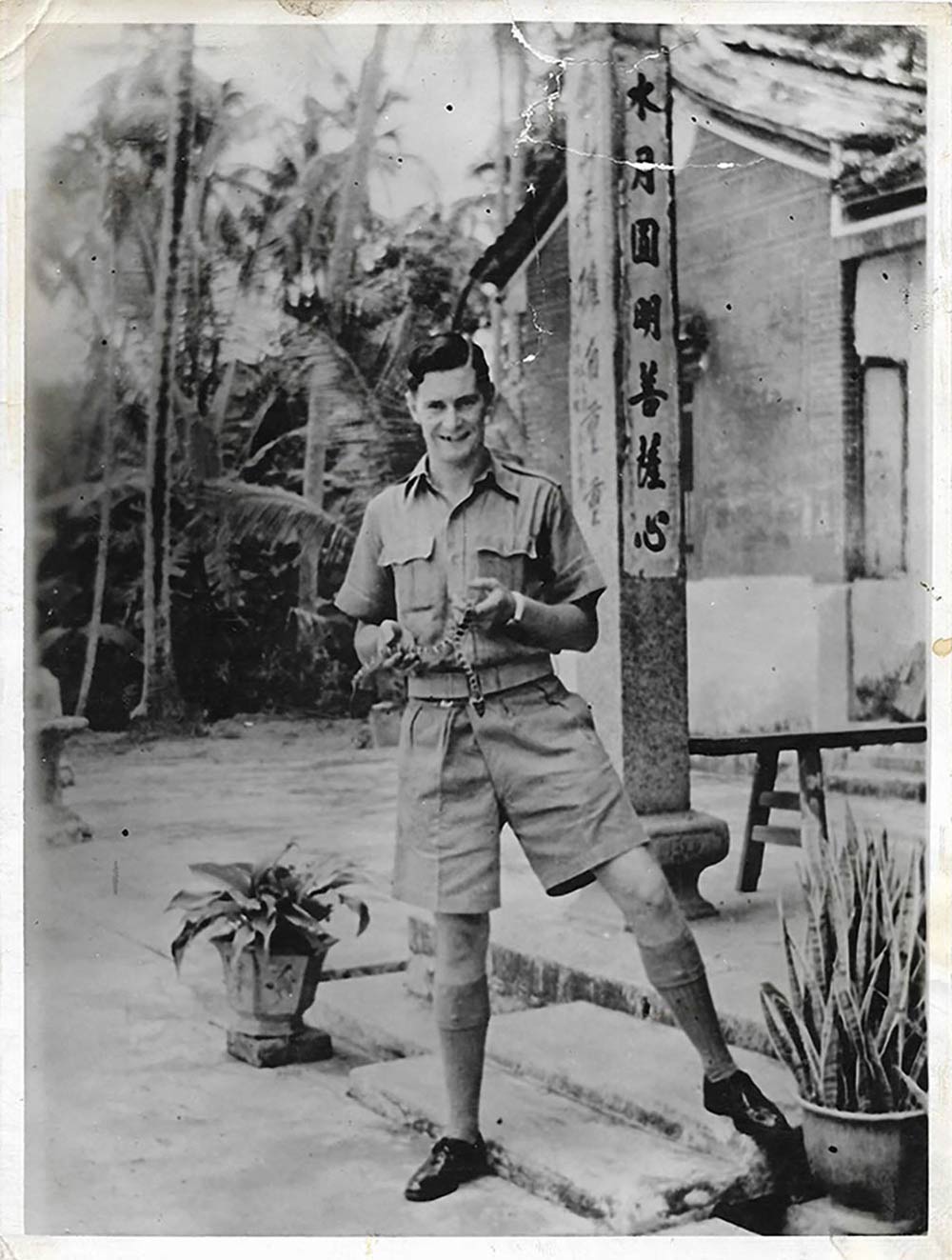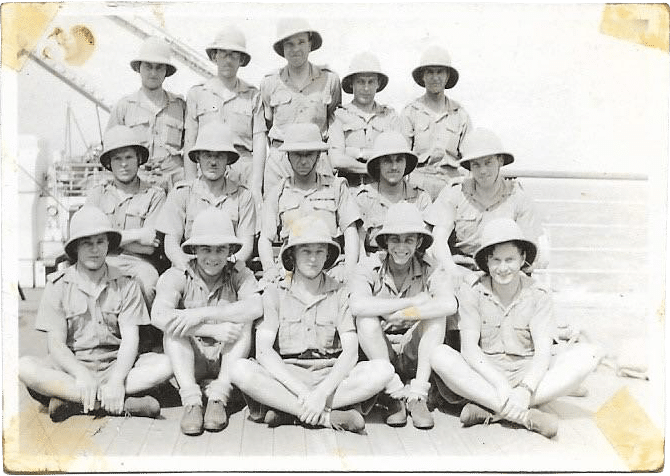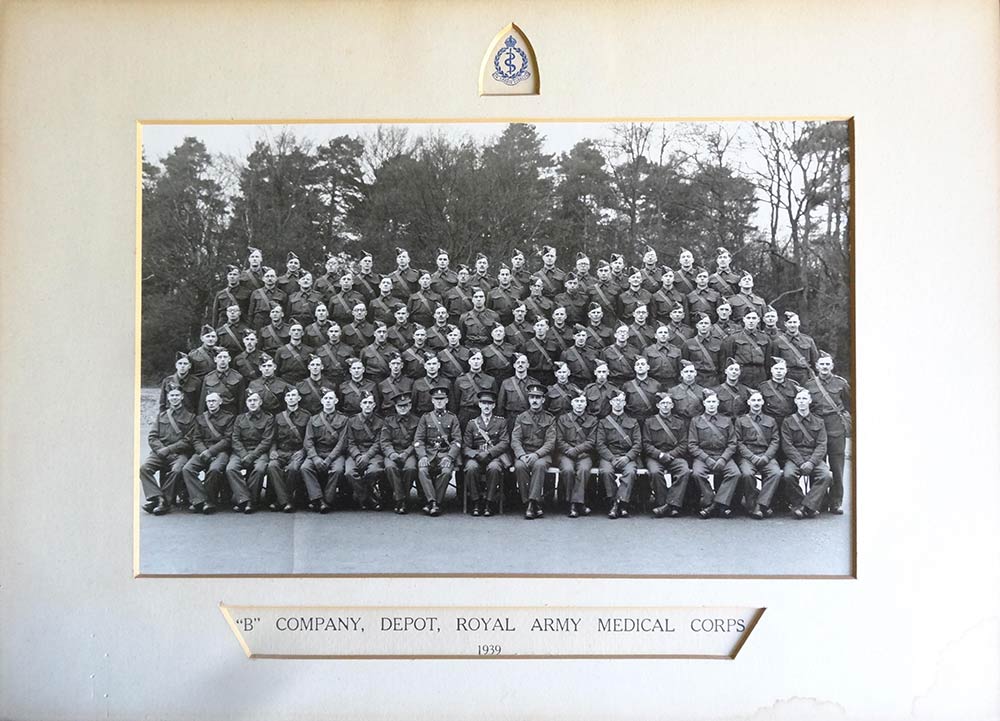About
This collection of almost 300 items is testament to the power of art and humanity over the adversity of war.
Jack Milnes Wood, from York, England, was a medic in the First Royal Army Medical Corps based in Crookham, Aldershot. On 4th February 1940 he boarded the Ulster Monarch and set sail from Southampton to Cherbourg. After an overnight rail journey to Marseille, he then boarded the RMS Andes. The ship docked in Singapore at 9pm on Monday 26th February, and on Tuesday 27th February 1940 Jack (according to his hand-written diary) “came ashore at Singapore at 7am. Convoy to Alexandra Barracks. Marvellous new place just in front of new hospital. Had good meals. Casual pay parade. Got settled down in Barrack rooms.” Jack was part of No.32 Company, based at Alexandra Barracks, and along with the rest of his fellow service people he had little idea of what the next four years would hold.

Sgt. J. M. Wood, RAMC, Nr. 7519134, was working in the Alexandra Hospital when the Japanese invaded it on Saturday the 14th February 1942. He was fortunate to escape the slaughter that ensued. His handwritten account of the invasion, and what happened in the hospital, is one of the first inclusions in the collection.
The history that unfolded under the Japanese occupation is well known, and the personal stories of survival, heartbreak and repatriation continue to inspire and forewarn future generations. Jack Wood’s story encompasses all of this.
Jack never disclosed any of his experiences to his family or friends, and it was not until after his death in 1978 that his family found a wooden box full of artefacts that he had collected during his time as a Prisoner of War in Changi Gaol from 1942 until 1945. Somehow he had managed to hide them from his captors for all those years – and found a way to bring them home to Yorkshire.

These items were carefully put into chronological order and bound in five large leather volumes by Charles Symington, Book Binders, York, and have resided with the family ever since.
It is the contents of this box and those books that make up this powerful collection of illustrations, manuscripts, musical scores, theatre programmes and diary entries.
We would like to share this message of kinship, compassion and co-existence through the power of art, theatre and literature. These stories, songs and images of courage and humanity are now available for all to read.
A further memoir, written by Jack and found long after the books were bound, pointed clearly to the fact that he intended to write a book about his experiences.
“I do not intend to harrow with gruesome details of the brutality and degradation to which we were subjected. No doubt all of you know of this from T.V. and Radio, from book and films, and from serials in the popular press.
But let me say that none of these reports to my knowledge were exaggerated. Indeed the majority were played down and if any of you saw that award winning film ‘The Bridge Over The River Kwai’, I would say that the POW camps depicted in the film were camps in which most POW’s would have been pleased to exist.
In fact the only example of journalistic license I have come across is in the current serial in ‘The People’ written by Mrs. Freddy Bloom, the wife of one of my RAMC Majors, and who was the subject of a recent TV “This is Your Life” programme: when she stated that at the Alexander Hospital in Singapore all the staff and patients were murdered. This was not so because only about ¾ of the staff and less than half the patients lost their lives on that fateful Saturday in 1942.
I know because I was there, and there I will begin my story.
Jack M. Wood
